Inside Good Housekeeping’s Test Office
On Monday, I was invited for a personal tour around the Good Housekeeping test office in the Hearst Tower. My friend, Sharon Franke, is in charge of the Kitchen Appliances and Technology department. We were talking about my upcoming wedding at an event and she invited me to her office to get an insider tour of the labs and to discuss my registry (another post on the registry sometime soon!) The office is in the Hearst Tower near Columbus Circle and the tower has a lot of interesting history because it is actually two different buildings; the base of the building was built in 1928 and declared a landmark building and the glass part of the building was started in 2001 and finished exactly three years later. The architect, Norman Foster, specializes in bringing together old and new buildings together in a cohesive and appealing way. All of the Hearst publications are in the building and it really is a beautiful space. I headed to the 29th floor, the Good Housekeeping labs:
Sharon has been at Good Housekeeping since 1987 and has been testing all types of kitchen appliances, including one of my favorite kitchen appliances of all time, the Sodastream! I learned all types of interesting things about Good Housekeeping – including the importance of their ‘Good Housekeeping seal of approval’; they guarantee all of their products and all of the products in their advertising – if something breaks, they’ll refund you!
We started off looking at the cosmetics area – they test all types of cosmetics and their claims (younger looking skin, less wrinkles, etc). They use regular people and have them try a product for a specified amount of time and do before-and-after shots of their skin in this interesting machine and can measure brown spots, wrinkles, and age spots. This room is temperature controlled and they can stress test all types of materials:
There are so many paper towels in the room because they were testing the durability of paper towels a few months back!
In this room, they test different types of running shoes, sheets and towels:
It’s like a little museum in there – here, they list their findings on the scam of high thread-count sheets:
Sharon told me that they had employees using a loop figuring out the thread count of the supposed 1500-thread count sheets when they were working on the project and it revealed that lots of companies were claiming they had a high thread count because they were using five pieces of string for every stitch and counting it as five thread-count instead of one! The photo also shows how towels can change in color and heft after washing them (and they use industrial strength detergent that’s used in the industry for all testing, not Tide)
This is the nutritionists area, where she tests and looks at all of the tricky food labels:
Lots of the labeling is really difficult to read and the nutritionist here tells you which 100-calorie snacks are better for you than others. It’s a popular area of the magazine because people are always looking for ways to minimize their calorie intake.
This is the test kitchen, where there are four stoves (none of them are Viking) where they test different recipes and host panels on food:
The view of Central Park from the 29th floor is pretty magnificent:
This room is one of the most interesting rooms I visited – they kept the style/design from the old Hearst building and kept everything the same:
The formal dining room:
The sitting area:
These rolling pins are also on display:
They are glass rolling pins that you fill with water to keep your dough cold and were gifts!
This is the most expensive piece of art in the entire Hearst building:
All of the presidents before George Bush and all of the first ladies before Michelle Obama have visited the Hearst dining room. Sharon said they have all types of events in the rooms and host parties there occasionally. They have book signings, charity events, and fun office parties in those rooms – it’s such a nice area and so different from the rest of the floor!
This is Sharon’s “office:
Next door to Sharon is the area where they test all types of washing detergents for the floor and kitchen:
The panels on the left side are the different types of flooring that are in homes; the scientist can pull the different types of panels out each day and test out the effects of cleaners and how well they clean up messes!
The scientist also prepares these sheets – fabric panels that have different types of stains that stay overnight to cure:
And then they’re washed to see which detergent is best for all types of stains!
This is another cool area – it’s one of three self-vacuuming testers in the world:
The orange rug is industry standard and you weigh an amount of debris that you pour on the carpet. Then, the rug gets vacuumed (without any hands!) and you weigh the debris from the vacuum to see how much was picked up:
Another temperature and humidity controlled room:
They also run tests for jackets and outerwear in here to see how long people can last in the cold room wearing insulated gear!
This area, the electronics lab, is probably the most interesting for guys:
They test all types of electronics (right now, they’re testing internet-enabled televisions) and give their recommendations on their picks. They also test toys and bring kids in to see how much they enjoy them.
Sharon is testing some cool non-stick pans right now and we talked about the different types of non-stick pans she likes (and what she uses at home!) It’s so much fun seeing other people’s workspaces – and to see how many different types of tests they run and how thorough they are before they recommend anything! Sharon was so nice to walk me through their office and to help me with my registry – I have some really great ideas for what I want to show Ken and I can’t wait to register for wedding gifts!
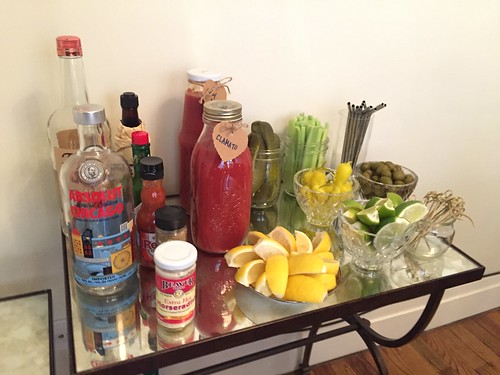
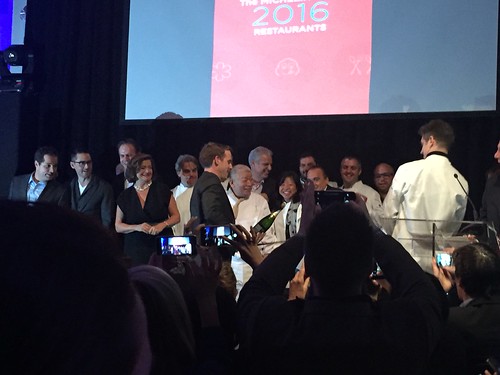
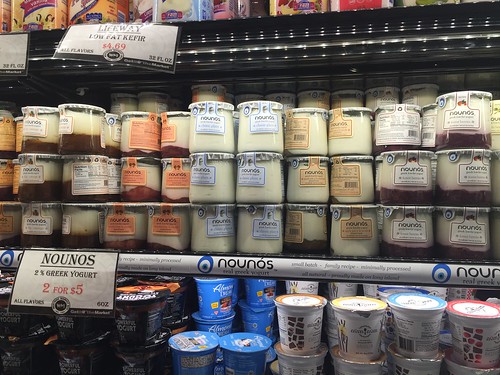


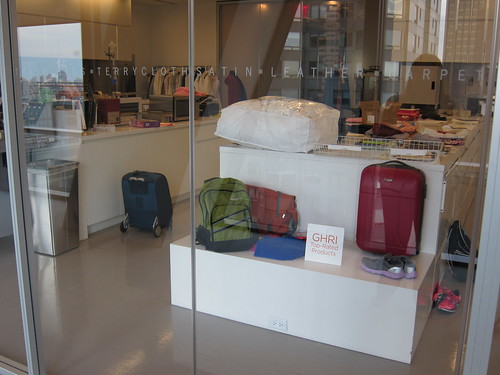









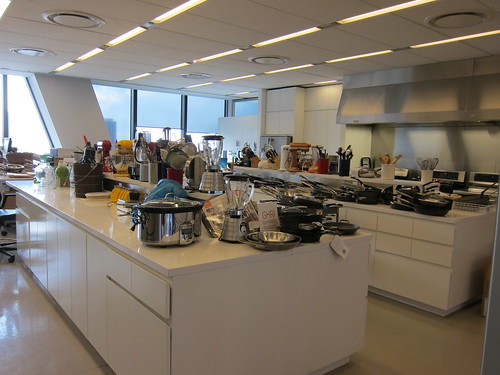

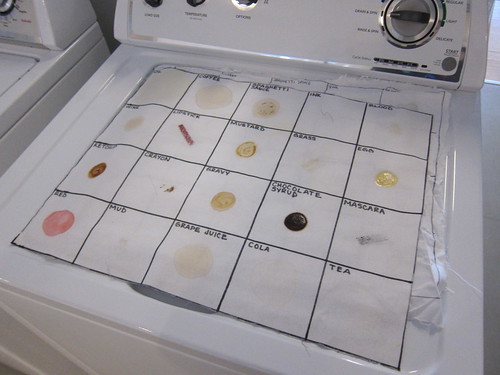


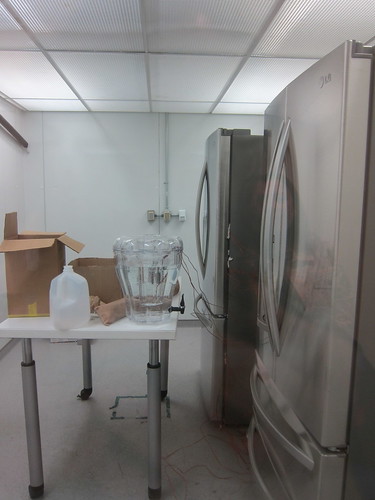
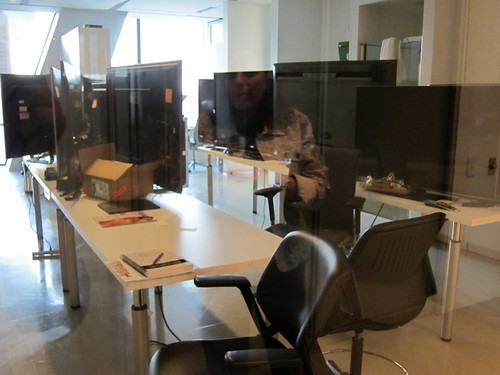
Reader Comments
hi! do you have a soda stream?? I’ve been curious as to whether it’s worth getting one – so if you wouldn’t mind blogging about yours, i’d love to hear it!!